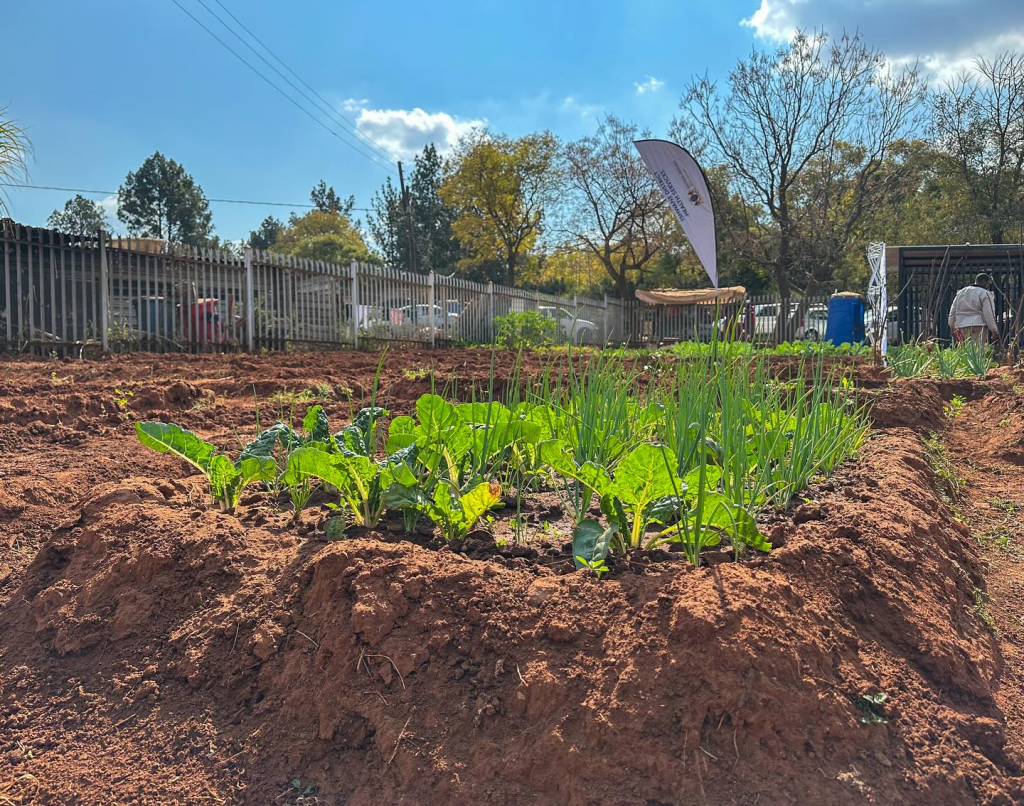How Vegetable Gardens at Gauteng Clinics Are Changing Lives

In a province where healthcare is increasingly under pressure, the Gauteng Department of Health (GDoH) is leading an innovative initiative aimed at tackling hunger, improving nutrition, and promoting sustainable livelihoods. The One Clinic, One Garden initiative is transforming healthcare facilities into hubs for nutrition and empowerment, using the power of vegetable gardens to positively impact the lives of both patients and local communities.
Table of contents
The Genesis of the One Clinic, One Garden Initiative
The One Clinic, One Garden project, spearheaded by the Gauteng Department of Health, is not merely about planting vegetables, it’s about creating sustainable, self-reliant communities. This initiative began as a response to the increasing burden of lifestyle-related diseases such as high blood pressure, diabetes, and heart disease, all of which are prevalent in the province’s clinics. MEC Nomantu Nkomo-Ralehoko, during the handover of a vegetable garden at Kammeldrift Clinic in Tshwane on 23 July 2025, emphasized that the solution to many health problems may lie not in medication but in the food we eat. “When people eat fresh, healthy food they grow themselves, they live longer, they live better, and they spend less time in clinics,” she said.
Transforming Clinics into Spaces of Healing
At its core, this initiative aims to turn clinics into more than just places where people seek medical treatment. By introducing vegetable gardens, the programme promotes self-sufficiency, helps to alleviate hunger, and encourages a culture of health and wellness. Community members are not just recipients of healthcare; they are active participants in the solution.

The gardens are planted with nutrient-rich vegetables such as spinach, cabbage, and tomatoes, and serve a dual purpose: to provide fresh produce for local clinics and to educate residents about the importance of nutrition. The vegetables grown are distributed to patients and community members, making nutritious food more accessible to those who may otherwise struggle to afford it. As a result, patients can benefit from better nutrition, which supports the healing process and improves long-term health outcomes.
Training and Empowering Communities
The One Clinic, One Garden initiative extends beyond planting vegetables. Local residents are being trained in agricultural practices and food production, equipping them with skills to grow their own food and even establish cooperatives. This model helps create economic opportunities and build livelihoods. By learning how to grow and sell produce, local residents can create sustainable income sources that improve their quality of life.

As part of this initiative, individuals are provided with farming tools and stipends during the training. This encourages not only the development of new skills but also a sense of ownership and pride in the work. For many, this is a life-changing opportunity that opens doors to greater financial stability.
Addressing Hunger and Health Together
The Gauteng Department of Health has long recognized that lifestyle diseases are a major burden on the healthcare system. While medication is essential, improving diets through access to fresh, healthy food can reduce the need for medical interventions in the long term. The establishment of vegetable gardens at clinics helps address food insecurity which is one of the main contributors to poor health outcomes. By ensuring that local communities have access to nutritious, home-grown produce, the initiative contributes to both better physical health and mental well-being.
A Model for Sustainable Healthcare
The success of the One Clinic, One Garden initiative is evident in the growing number of clinics involved in the project. These clinics are not only providing medical services but also contributing to the health and well-being of their communities. MEC Nkomo-Ralehoko emphasized that the project is part of a larger vision to create more resilient healthcare systems that go beyond just treating illness. “The fight against hunger, disease, and unemployment does not start in the boardroom but in communities on the ground, in the garden,” she said.
It is crucial that we encourage communities to get active and adopt healthier lifestyles to reduce the burden of disease on the public healthcare system.” ~MEC Nkomo‑Ralehoko
Through this initiative, healthcare clinics are evolving into community centers that provide holistic care. As these gardens flourish, so too does the hope for a future where sustainable food systems and community-driven health solutions play a central role in shaping the province’s health landscape.
Want to see how South Africa is turning the tide on climate change with a green revolution? One Million Trees: New Campaign Aims to Boost Reforestation and Tackle Climate Change. Click to read about this ambitious reforestation effort and how you can get involved.
The Future of the Initiative
The One Clinic, One Garden programme is expanding to more clinics across Gauteng, with a vision to include a garden at every healthcare facility. By combining healthcare with sustainable agriculture, this initiative is not only addressing immediate health concerns but also laying the foundation for long-term food security and economic independence. The province’s investment in these community-driven projects is helping to change the lives of thousands of South Africans who might otherwise have limited access to nutritious food and healthcare.
For Gauteng residents, the One Clinic, One Garden initiative represents more than just a health project, it’s a pathway to a better, healthier, and more self-sufficient life. As more communities embrace this model, the hope is that it will serve as an example for other provinces across South Africa and beyond.




